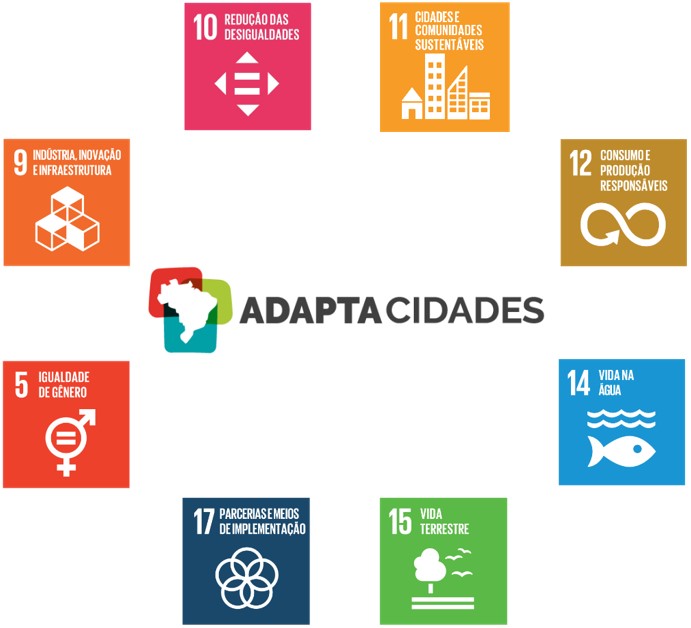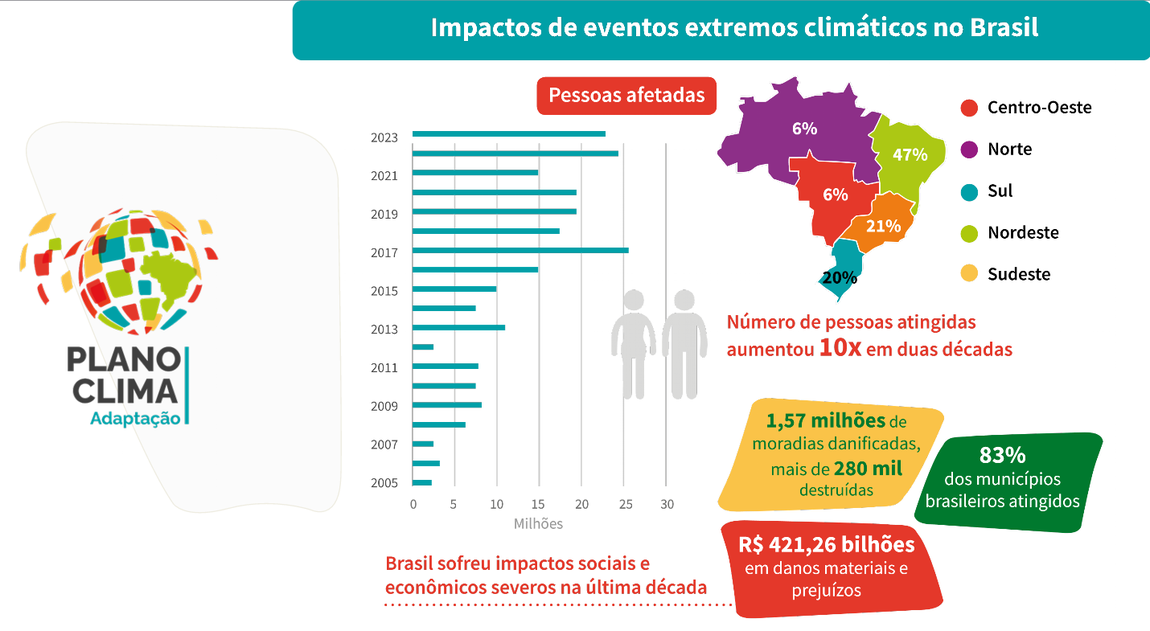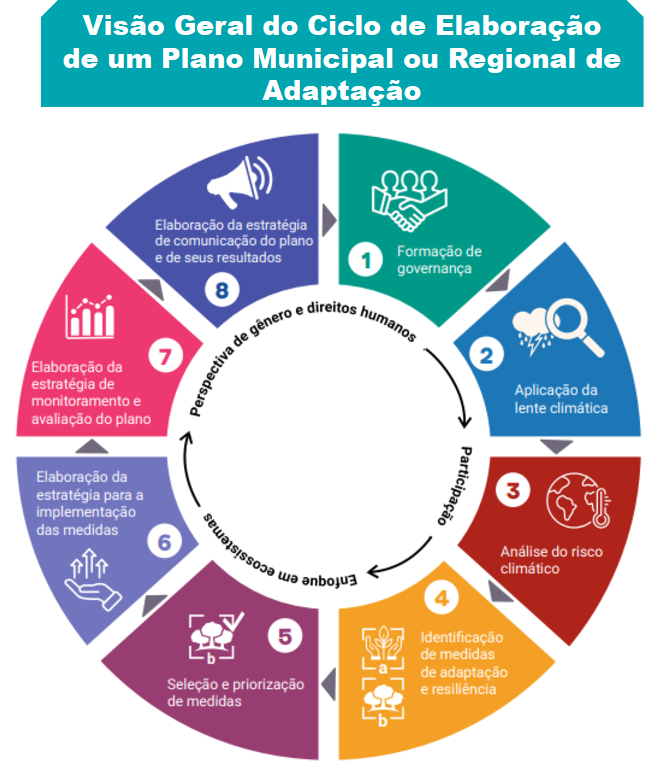Brazilian program trains local governments on climate adaptation
Brasil reinforces its commitment to climate change adaptation by training states and municipalities to develop effective and inclusive plans

While cities are the largest emitters of greenhouse gases, they also play a strategic role in promoting sustainable development, according to UNEP (United Nations Environment Program). They provide the infrastructure, human capital, and collaborative networks needed to implement transformative solutions. With this in mind, the Brazilian government is promoting AdaptaCidades, as part of the Climate Adaptation Plan, to provide municipal and state civil servants with technical capacities to draw up climate adaptation and resilience plans.
"AdaptaCidades was founded on the need to unite states, municipalities, and the Federal Government in a large social, political, and federative agreement to address climate change. This is not an agenda that can be handled solely by one government or sphere. "We are talking about the main contemporary challenge," says Inamara Melo, general coordinator of the Brazilian Ministry of the Environment's Department of Policies for Climate Change Adaptation and Resilience.
The program will be presented at the Meeting of New Mayors, which takes place from February 11 to 13 in Brasilia. Classes are scheduled to begin in March. Bringing climate federalism into play, AdaptaCidades brings the federation, states, and municipalities into synergy to promote coordinated actions that increase the resilience of populations, cities, territories, and infrastructures in the face of the climate emergency.
What is climate federalism?
"Climate federalism" is a strategy that aims to bring together the efforts of states, municipalities, and the Federal Government to combat climate change. The goal is to promote coordinated actions to meet local needs while also honoring Brasil's international commitments to the agenda. This concept focuses on two main pillars:
• Mitigation.
• Adaptation to climate change.
Resolution 3/2024 established climate federalism in Brasil, a concept that is part of the new Brazilian Nationally Determined Contribution (NDC).
Strategic training

The initiative will include 260 municipalities, ten per state. In some cases, such as Rio Grande do Sul, the course will be delivered to municipal associations, allowing more cities to benefit from climate adaptation and resilience expertise. The course covers the following topics: green areas and urban afforestation, sustainable land use and occupation, nature-based solutions, low-carbon technologies, sustainable mobility, and urban waste management.
The initiative aligns with the Brazilian NDC, or Nationally Determined Contribution, which establishes targets for reducing greenhouse gas emissions. Inamara Melo emphasizes that through this initiative, the Brazilian government is bridging gaps between countries to promote multi-level governance, strengthen institutional capacities, and provide means of implementation for the climate change adaptation agend.
Green and Resilient Cities
While more than half of the world's population currently lives in cities, in Brasil more than 85% of people live in urban areas, according to data from UN Habitat and the IBGE (Brazilian Institute of Geography and Research). It is in urban areas with their growing populations that the impacts of climate change are felt the most.
Extreme droughts and heavy rainfall damage infrastructure, causing disruptions in water supply, food production, and energy generation, resulting in social, economic, and environmental damage and irreversible loss of life. According to the Ministry of the Environment, extreme weather events in Brasil have already affected 1.57 million homes, resulting in total losses of BRL 421 billion, including damage to private property, public infrastructure, agricultural activities, and other economic sectors.

“AdaptaCidades arises from the need to make the commitment to climate federalism a reality and should offer support to states and municipalities to strengthen their institutional capacities, ensure planning for the climate change adaptation agenda, and make everyone aware of the risks we face. We need to make sure that the agenda is thought out locally, that it takes account of local territorial realities,” Melo pointed out.
Municipal governments can provide an institutional policy framework that is more tailored to the needs and specificities of their cities because they are more intimately familiar with the effects of climate change. The program proposes to assist municipalities by providing tools, technical capacity building, governance, monitoring, and financing options.

"The aim is to provide measures and enable states and municipalities to access funding and concrete, effective measures to deal with climate change," stated the general coordinator. As a result, AdaptaCidades is being submitted to the Green Climate Fund in order to secure the necessary resources and expand the project to as many Brazilian municipalities as possible.
Exchange of experiences at COP30
During COP30, the Coalition for High Ambition Multi-Level Partnerships (CHAMP) will use data and strategies from AdaptaCidades to demonstrate how a cross-cutting approach, focused on the specific needs of cities, can make a significant contribution to the global climate change agenda, informed Inamara Melo.
Launched during COP28, this coalition facilitates the exchange of experiences and best practices between different locations, allowing effective climate adaptation and resilience solutions to be shared and replicated based on the unique needs of each local context.
Vulnerable populations in focus
The Climate Plan and AdaptaCidades include policies for vulnerable groups such as women, the poorest members of society, peripheral and rural populations, indigenous communities, and quilombolas. The general coordinator emphasized the importance of prioritizing those who contribute the least to global warming but are the most affected by climate impacts.
